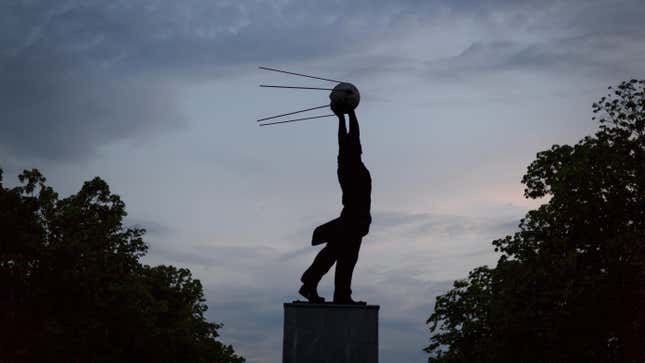
A group of scientists is questioning the only available study so far supporting a controversial vaccine candidate for the coronavirus that causes covid-19, which is being developed by the Russian government. The group is claiming to have found “potential data inconsistencies” that make some of the findings highly unlikely to be genuine.
The Russian vaccine study was published in the Lancet last week. It was a Phase I/II trial involving 78 healthy volunteers in total, who received one of two formulations of the experimental vaccine, codenamed Sputnik V. There were no reports of serious adverse events among the volunteers—meeting the primary goal of these early clinical trials—and there was also evidence that volunteers developed an immune response to the SARS-CoV-2 coronavirus that theoretically should protect them from infection.
The results were largely welcomed by the scientific community at first, given the previous lack of any published evidence on Sputnik V, which Russian authorities already approved for use a month earlier, seemingly based on this data. It’s still unclear whether this approval will actually result in the country’s residents having access to a covid-19 vaccine any sooner than people in other countries. A Phase III trial of Sputnik V started in late August, which is usually the last step of clinical research needed before a treatment can be brought to market.
In an open letter to the Lancet and the study’s authors, signed by over 35 scientists and released this week, researchers claim they are suspicious of the data presented in the Lancet paper. The letter is predominantly signed by scientists involved in immunology, biology, or drug development and includes those based in Europe, North America, and Venezuela (the sole scientist from Russia is a Max Trushin, a microbiologist and geneticist at Kazan University).
The letter highlights aspects of the data that they’re calling fishy, in so many words. The volunteers were split into several treatment groups, testing variations of the vaccine that were either frozen or freeze-dried or only receiving one half of the vaccine’s two-dose strategy for safety testing. The letter points to figures showing some of these different treatment groups having very similar or even identical levels of antibodies or other immune responses post-inoculation. In other cases, the level of antibodies don’t seem to decline at all in the same group during the study’s length, which ran for over a month. They were also concerned about the lack of information available on a group of people with documented covid-19 presented in the study, used to compare against the immune responses of the vaccinated group.
By itself, any one of these things may not be a big deal. But though the experts don’t go as far as to explicitly accuse the study’s researchers of fraud, they do conclude that “the fact of observing so many data points preserved among different experiments is highly unlikely.”
The letter calls for an investigation into the study by the Lancet, along with the release of the study’s raw data, on the individual level, to help settle these questions. According to a statement released by the Lancet, the letter has been shared with the study’s authors and the publisher is now encouraging them “to engage in the scientific discussion.”
Denis Logunov, lead author of the Lancet study, has not yet responded to a request for comment concerning the letter.
This news comes on the heels of recent difficulties for another covid-19 vaccine being studied right now, the AstraZeneca/Oxford University vaccine. The concern there is that a woman volunteer was found to have developed serious neurological symptoms at some point after receiving the vaccine. Right now, however, it’s not clear whether the woman’s symptoms are actually related to the vaccine.
Should this letter lead to the discovery of fabricated data, it sadly wouldn’t be the first time that the Lancet has been involved in such a scandal during this pandemic. In June, the Lancet retracted a study suggesting that the drug hydroxychloroquine was both ineffective for patients with severe covid-19 and possibly increased their risk of dying, after outside scientists found that the hospital data used for the research was likely fabricated (other clinical trial data has since found that hydroxychloroquine is not as effective as other therapies for covid-19, but not necessarily dangerous).